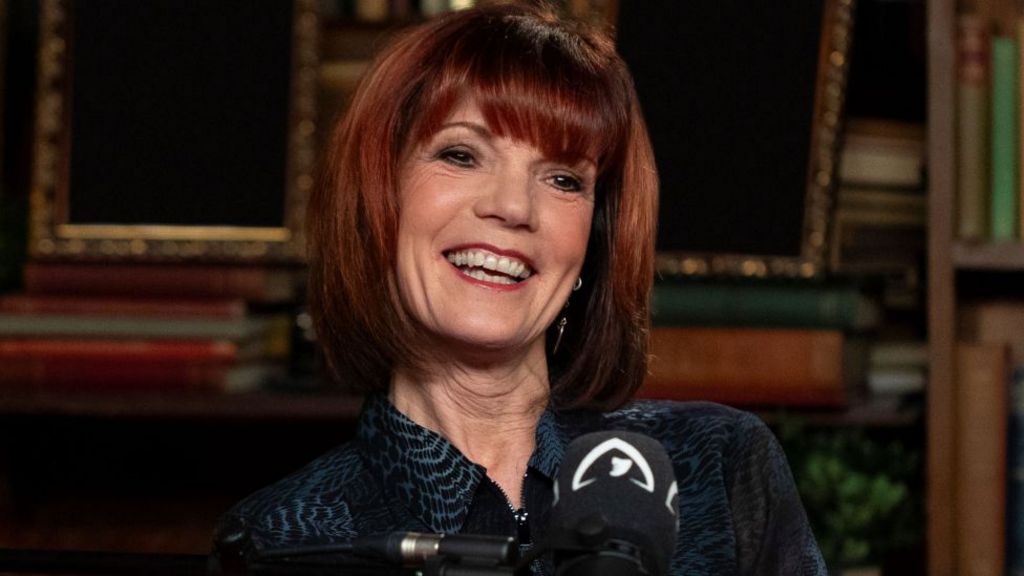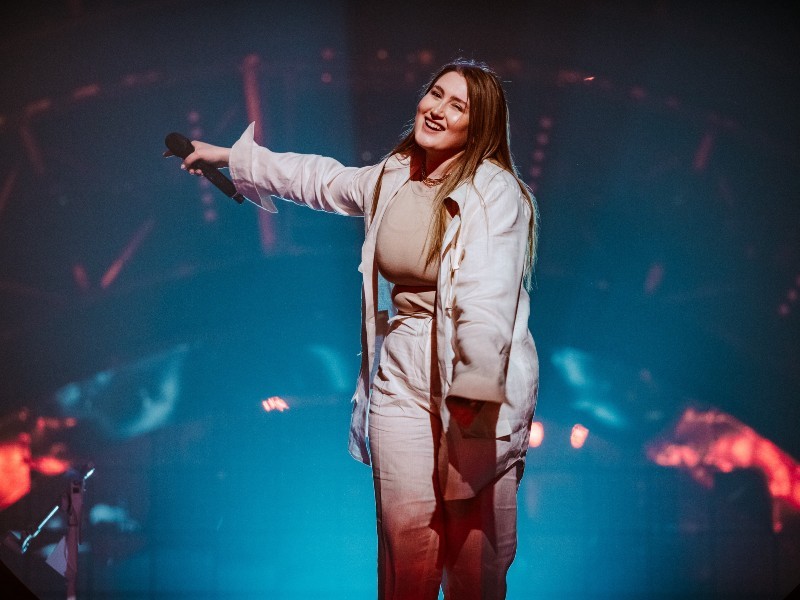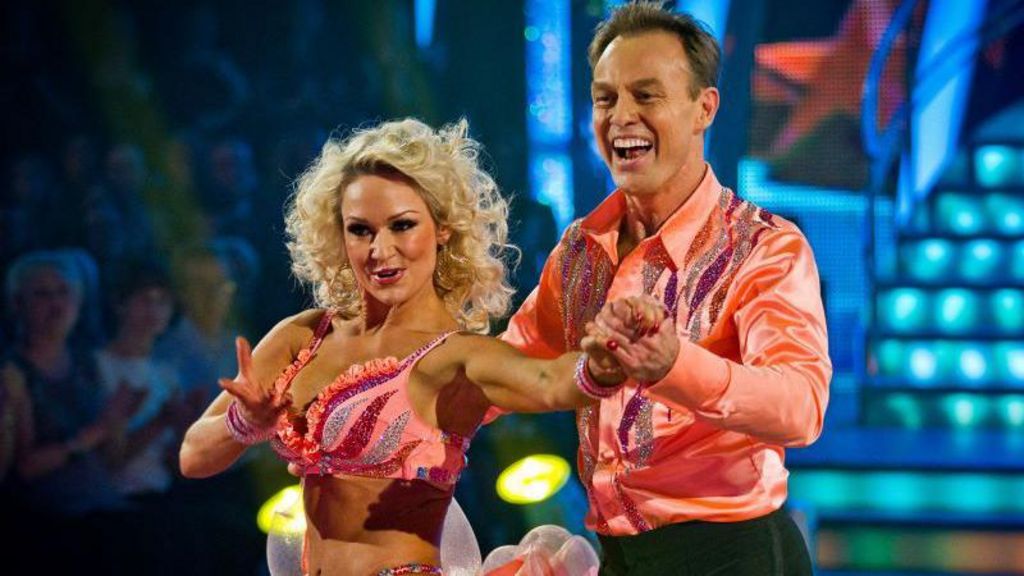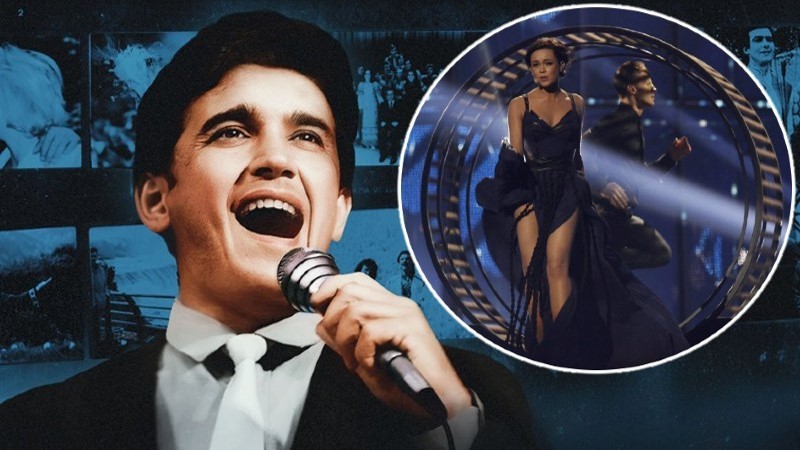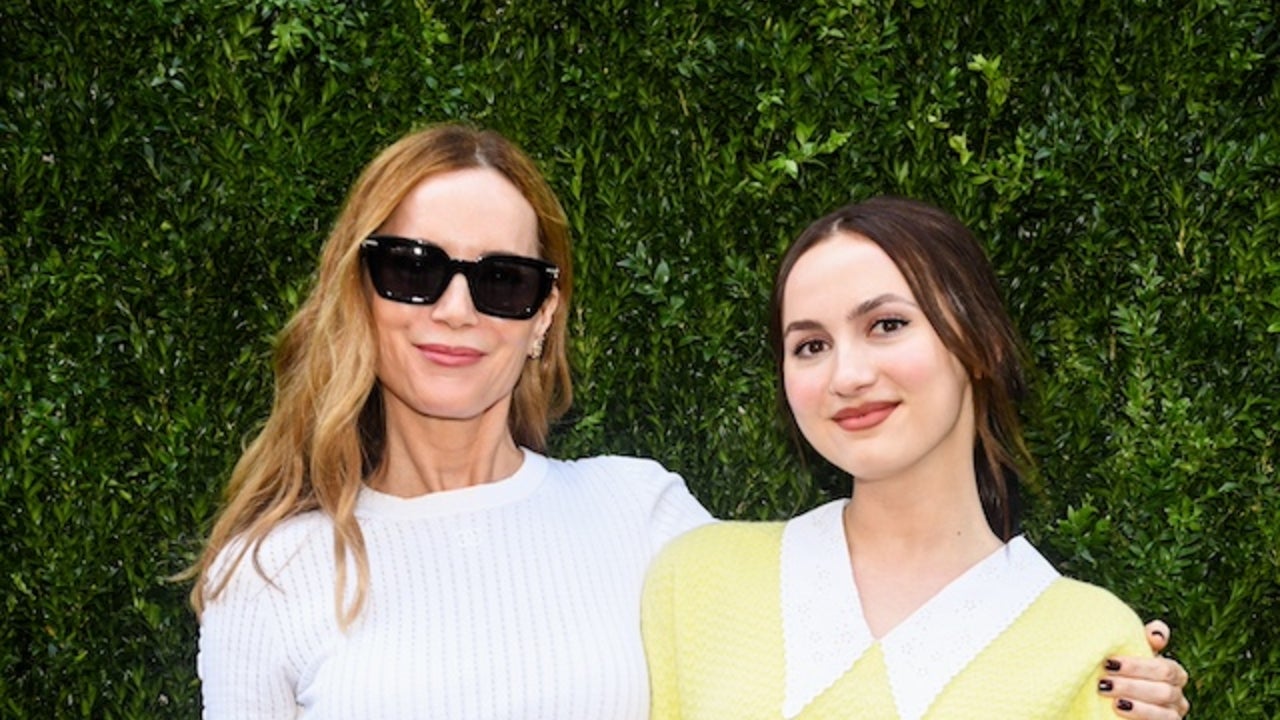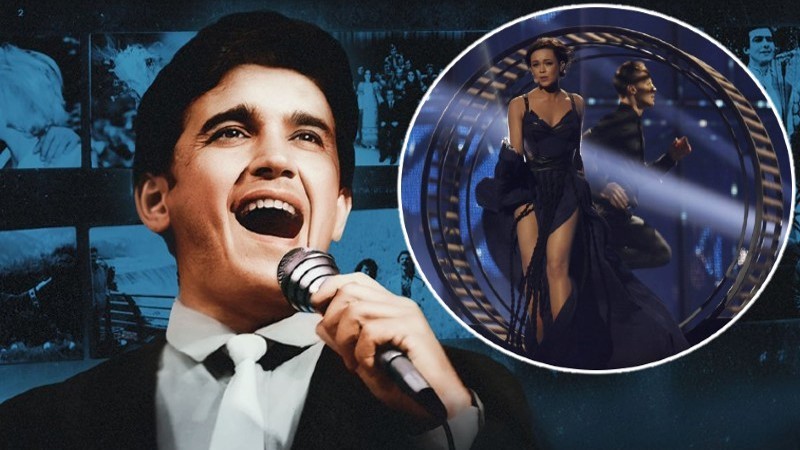
In 2014, Mariya Yaremchuk finished sixth at Eurovision in Copenhagen. Many might remember her from her addictive pop song “Tick Tock”. Her performance featured a now world-famous hamster wheel. But the surname “Yaremchuk” rang another bell to Ukrainians – that of Nazariy Yaremchuk, a Ukrainian pop icon and Mariya’s father.
Mariya has been long dedicated to the work of her father. In 2014, she released her own cover of “Rodyna” (“Family”), one of his best-known songs. Nine years later, at Eurovision 2023 in Liverpool, she performed this song as part of an interval act during the second semi-final. Alongside, she wore a dress unveiling the face of her father.
But Mariya dreamt of making a film about her father, who passed away when she was just two years old. In 2024, Yaremchuk: Matchless World of Beauty finally hit the cinemas. Within a month, the film proved to be a box office success for its relatively small budget. As a result, Netflix requested worldwide broadcasting rights, which were granted for international release on 11 September.
Mariya Yaremchuk’s co-produced documentary lands Netflix release
While withdrawn from the spotlights for several years, Mariya Yaremchuk silently worked on a biopic on the life of her father. In the same time, she also welcomed her first child.
For a long time, Mariya Yaremchuk remained the sole investor in the project. But she found a collaborator in Maksym Serdiuk — the founder of SLUKH, one of Ukraine’s most popular culture news media.
In 2021, Yaremchuk and Serdiuk started shooting interviews and preparing the film. However, the Russian invasion of Ukraine disrupted the process. The film, set to be released in the summer of 2022, received a pushback to 2024.
On 8 August 2024, the film was released in Ukrainian cinemas. This release happened under the wings of FILM.UA, the country’s biggest film distributor. Within a few weeks, tens of thousands of tickets were sold.
The film received the title Yaremchuk: Matchless World of Beauty — which refers to Nazariy Yaremchuk’s first solo song as part of the group Smerichka. Vyzhnytsia, Nazariy Yaremchuk’s picturesque hometown on the foot of the Carpathians, inspired the title of that song.
Shortly before the film dropped, Mariya produced the release of a compilation album on which famous Ukrainian artists covered songs previously performed by her father. Fellow Eurovision alums Jamala and O.Torvald took part in the creation of the album. So you might have familiarised yourself with the songs without knowing they were part of a bigger project!
Review | Yaremchuk: Matchless World of Beauty
- Film duration: 94 minutes
- Director: Artem Hryhorian
- Studio: KNIFE! Films
Known for his strong singing voice and his gracious smile, Nazariy Yaremchuk was Ukraine’s heart throb for little over two decades. Born near Vyzhnytsia in southwestern Ukraine, he grew to be a face of the first wave of Ukrainian pop singers in the 1970s, fusing “Western” genres of funk and rock with variety and folk music.
Nazariy Yaremchuk’s career knew several musical ups and downs, but a whole generation grew up with his music. After he passed away in 1995 at the mere age of 43, he slowly started fading from memory. Many of the younger generation in Ukraine would be unfamiliar with him. All the more reasons for his daughter Mariya to create a documentary about his somewhat mysterious life and career.
However, in between the filming and its release, something changed in Ukraine. Over the last year or so, there has been renewed attention towards 1970s music in the country – the very roots of modern day Ukrainian pop music. Clips and fragments of old Ukrainian songs – sometimes including Nazariy Yaremchuk – went viral on platforms such as TikTok.
As a result, dozens of shorter and longer documentaries on Ukrainian pop music icons have been released in the past two years. Matchless World of Beauty had the risk of accidently repeating what others had already said – despite the fact that Mariya Yaremchuk and Maksym Serdiuk were among the first to create such a documentary. It just took longer for theirs to hit the screen eventually.
Whilst making the documentary, the creators interviewed a wide range of people that formed the overarching thread of the film. Interviewees included Oleksandr Zlotnyk and Pavlo Dvorsky, Yaremchuk’s main songwriters after Volodymyr Ivasiuk’s death in 1979, but also those who worked with him for a smaller period.
The first part of the documentary can feel a little rushed. It chronicles the life of a Ukrainian teen getting famous during a time of changing spaces, which saw the Ukrainian culture flourish and repressed, including the murder of a close friend and composer. That was perhaps too much to unravel in just 45 minutes.
The latter half of the documentary is however more personal, full of anecdotes and private accounts that do give a rare insight into Nazariy Yaremchuk’s persona and career, chronicling the last years of his life. The interviews then give more touching accounts.
It gets slightly eerie when Pavlo Dvorsky – Nazariy’s lifelong musical shadow – talks about their trip to Chornobyl in 1986 after they were asked to perform for the plant’s liquidators. There, Dvorsky’s guitar received such a high dose of radiation that they had to get rid of it. He adds that journalists abroad were shocked to see a picture of them less than one hundred metres from the core of the nuclear plant. Both were unaware of the massive risks to their health and the fact that they were being used as a political propaganda tool at the time.
It’s one of the several examples the documentary tries to give on the life of artists curtailed by the Soviet apparatus. But that account remained one of the most striking ones.
Daryna Yaremchuk and Vira Troian – Nazariy’s widow and stepdaughter – give a private account into their family life in the 1990s. Daryna and Nazariy’s spontaneous wedding, the birth of Mariya, the independence of Ukraine contrast strongly with the sudden illness of Nazariy and his eventual death. However, the film still cleverly manages to end on a positive, hopeful note. It’s hard to say how, but it does.
These unique perspectives, especially coming from Nazariy’s widow Daryna, really add to the film and its impact. Unique and sometimes newly uncovered archival footage make this documentary stand out from the many new but repetitive documentaries we’ve seen on Ukrainian pop icons coming from television stations in recent years.
If you want to treat yourself to a unique insight of Ukraine’s music history, then this is your film.
Are you going to watch the film? Or did you already watch it? Let us know in the comments down below!

